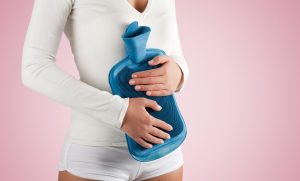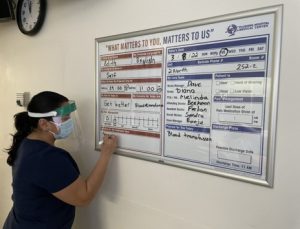 There are a few steps that normally occur for a woman to become pregnant. The first is a single sperm fertilizing an egg. The next steps involve the fertilized egg traveling down the fallopian tube and descending to the uterus where it attaches itself to the lining and begins to grow.
There are a few steps that normally occur for a woman to become pregnant. The first is a single sperm fertilizing an egg. The next steps involve the fertilized egg traveling down the fallopian tube and descending to the uterus where it attaches itself to the lining and begins to grow.
The uterus is the only place in the body where the egg can survive and successfully develop into an embryo. Unfortunately, there are instances where the egg does not make it to the uterine lining but instead attaches to the fallopian tube, abdominal cavity, or cervix. This is called an ectopic or extrauterine pregnancy.
According to the American Academy of Family Physicians (AAFP), ectopic pregnancies occur in an estimated 1 out of every 50 pregnancies. Any woman can be at risk for this problem; however, the risks are higher if you:
- Are older than 35 years of age
- Had a previous ectopic pregnancy
- Have a history of endometriosis
- Have pelvic inflammatory disease (PID)
- Have a history of sexually transmitted infections (STIs) such as chlamydia or gonorrhea (STIs can also lead to PID)
- Are a smoker
- Conceived with the aid of fertility drugs
- Have scarring as a result of pelvic, abdominal, or fallopian surgeries
- Have had tubal ligation or tubal ligation reversal surgeries
- Birth defects that change the shape of the fallopian tubes
An ectopic pregnancy typically occurs within the first weeks of pregnancy. Signs and symptoms may include:
- Vaginal bleeding
- Pelvic pain
- Lower back pain
- Pain in the neck or shoulder
- Pain on one side of the body
- Pain or pressure in the rectum
- The urge to have a bowel movement
- Dizziness or weakness
Pelvic pain and vaginal bleeding are among the first warning signs of ectopic pregnancy; therefore, if you are experiencing this along with lightheadedness, shoulder pain or any other symptoms seek immediate medical care. An ectopic pregnancy can potentially lead to the rupturing of the fallopian tube and heavy bleeding, which can be life-threatening.
Early diagnosis and treatment of ectopic pregnancy can reduce the risk of complications. Treatment includes medication to stop the embryo from growing or surgery to remove the ectopic pregnancy.
If you believe you are at risk for ectopic pregnancy and would like to schedule an appointment with an OB/Gyn at Flushing Hospital Medical Center, please call 718-670-8992.
All content of this newsletter is intended for general information purposes only and is not intended or implied to be a substitute for professional medical advice, diagnosis or treatment. Please consult a medical professional before adopting any of the suggestions on this page. You must never disregard professional medical advice or delay seeking medical treatment based upon any content of this newsletter. PROMPTLY CONSULT YOUR PHYSICIAN OR CALL 911 IF YOU BELIEVE YOU HAVE A MEDICAL EMERGENCY.










